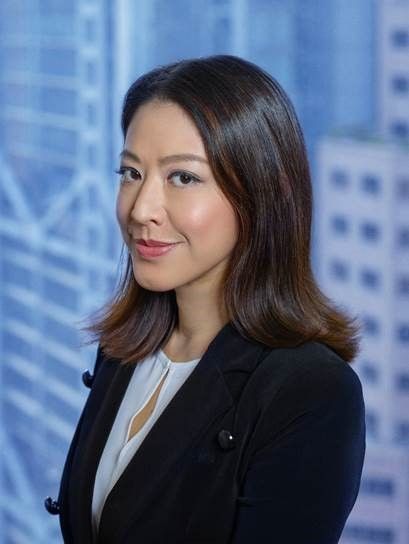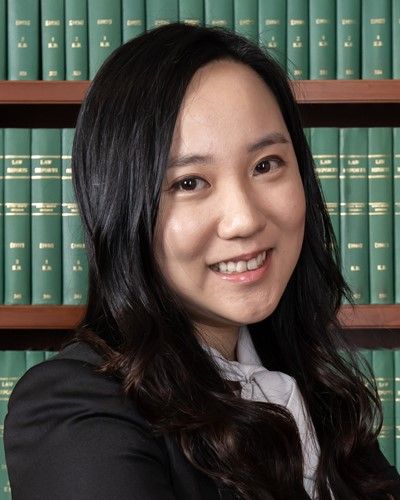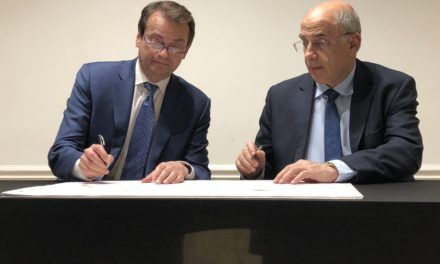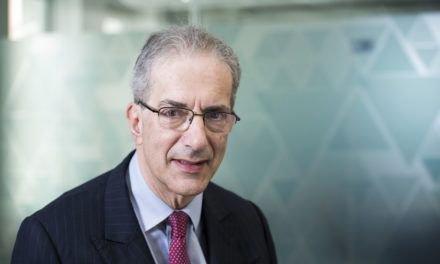
Catrina Lam was Called to the Hong Kong Bar in 1999. She is a member of Des Voeux Chambers. Catrina was a former Middle Temple Scholar and has been Secretary of the Middle Temple Society in Hong Kong since 2009. She was appointed an Honorary Member of the Middle Temple in 2018.

Cordelia Yeung was Called to the Hong Kong Bar in 2018. She is a member of Alan Leong S.C.’s Chambers. She is developing a broad civil practice with a focus on commercial and family matters. Cordelia was a former Middle Temple Scholar and has been assisting the Middle Temple Society in Hong Kong since 2019.
The word ‘unprecedented’ has been thrown around in the last few months when speaking of the global Coronavirus pandemic. This too captures the sentiment felt among the wider community and legal community in Hong Kong, including barristers and fellow Middle Templars.
Days after the virus first reached the city, the judiciary began the General Adjourned Period (GAP). The Courts, and its registries and offices, were closed from Wednesday 29 January 2020 onwards, subject to urgent and essential hearings and matters. For litigants, the oft-quoted maxim attributed to William Gladstone, ‘justice delayed is justice denied’, rang ever true.
The GAP threw into sharp relief the need for the Hong Kong judiciary to embrace technological developments. The Courts found themselves trying to navigate the crisis. In Cyberworks Audio Video Technology Ltd v Silver Kent Technology Ltd [2020] HKCFI 347 (Coleman J), the Court of First Instance ordered a telephonic hearing in lieu of an oral hearing, noting that the physical attendance of parties and/or their representatives together with the Judge and judiciary staff in a courtroom was not at the time permissible on public health grounds.
Afterwards, on Thursday 2 April 2020, the Chief Judge of the High Court issued a Guidance Note recommending the use of video- conferencing facilities (VCF) where oral submissions were necessary. Equipment used at remote locations must be compatible with the Court’s VCF and meet the operational requirements. Judges would consider which of their cases might be suitable for remote hearings using VCF.
Following the Guidance Note, in CSFK v HWH [2020] HKCA 207, the Court of Appeal confirmed that there was nothing restricting the mode of receiving submissions and evidence as long as the judges sat in the High Court. Judges could determine the mode of hearing as a matter of case management if the dual requirements for fairness and openness were satisfied. Provided that an official and accurate record could be kept for the hearing, there was no reason not to embrace VCF hearings. Additionally, Mr Justice Yeung conducted a judicial review application through video-conferencing in Lui Chi Hang Hendrick v Independent Police Complaints Council [2020] HKCFI 614. The remote hearing took place on Tuesday 7 April 2020. Barristers made oral submissions from chambers in their robes and face masks. To ensure open justice, screens were set up inside the court room where the Judge sat (and at two lift lobbies outside the court room) broadcasting live counsel’s submissions so that the hearing remained accessible to the public. Mr Justice Yeung commented in Court that it was a ‘smooth hearing’.
During the GAP, the Hong Kong Bar Association (HKBA), the professional regulatory body for barristers, recommended its members not to go to court if they feel unwell or display any symptoms. We were advised to minimise travelling out of home. Challenges abound when balancing work and spending an unusually significant amount of time with family members in close quarters. Moreover, at once daunting and thrilling is the experience of using VCF in all of its glory and unreliability. Frequent conversations among barristers now revolve around the ease of using Zoom and Bluejeans, and the relevant security issues.
The pandemic has profoundly affected the work of both civil and criminal practitioners in private practice at the Bar. With reduced court work, and clients reticent to litigate or continue with ongoing proceedings, livelihoods are affected. These times have been particularly difficult for barristers under 7 years Call for whom it is not uncommon to foot a HKD20,000.00 bill (around £2,000) for office rent every month. In March, the HKBA announced a scheme to enable young barristers to obtain interest-free loans to offset expenses.
The training received by the current pupil barristers has been significantly affected, given little or no opportunity to attend court. The HKBA has advised pupil masters to arrange for their pupils to accompany chamber-mates when such opportunity arises. Furthermore, some pupil barristers undertook advocacy training via Zoom in May.
At the time of writing, there are around 1,040 confirmed cases in the city. The numbers are levelling off. On Monday 4 May 2020, the Courts re-opened, with various registries to follow gradually. There is a significant backlog of matters and hearings. There are also concerns of a ‘third wave’ of infections. As per the fighting spirit of Hong Kong, in these unprecedented times, the legal community will no doubt endeavour to find a new normal – or whatever is the closest to it.



